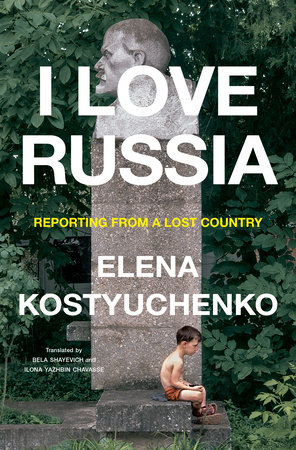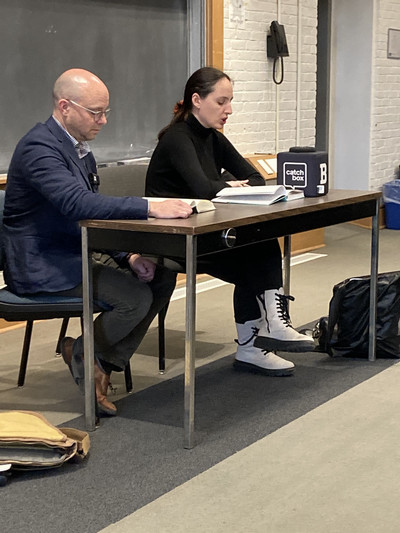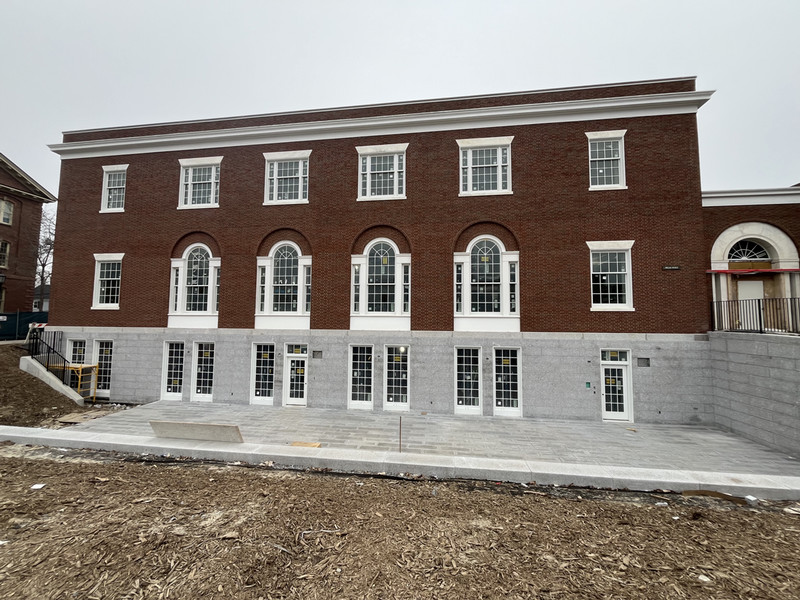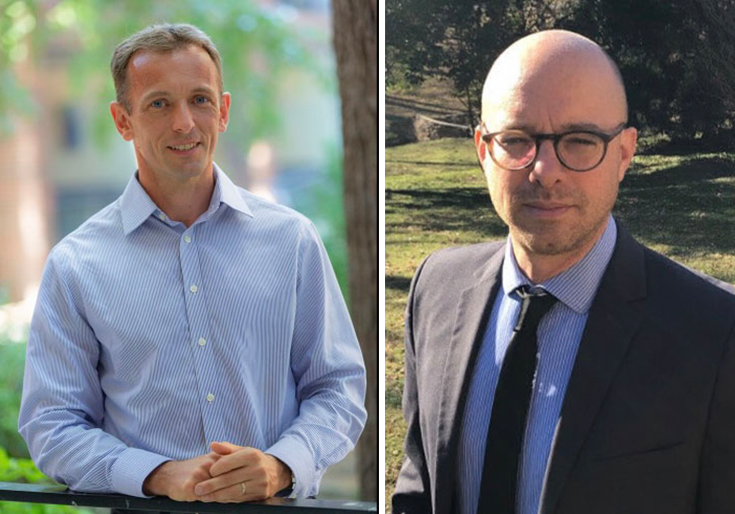Exiled Russian Journalist Describes Traumatic Relationship with Mother Country
By Tom Porter
Due to draconian measures imposed by the Kremlin for even discussing events in Ukraine, she explained, Russian citizens dare not candidly approach the subject of politics with anyone but their closest friends and family—so small talk it is!
This was a rare moment of light relief during a recent trip to campus by the award-winning Russian activist and journalist, now in exile in the US.
Kostyuchenko was invited to Bowdoin to discuss her journalism, share her thoughts, and read from her recent book I Love Russia: Reporting from a Lost Country, whose accolades include being named Best Book of the Year by The New Yorker.
Her journalism has involved groundbreaking reporting on the persecution of LGBTQ people in Russia, the arrest of the band Pussy Riot, ecological catastrophes in the Russian Arctic, and most recently, a series of powerful investigations on Russia’s invasion of Ukraine in 2022, after which she was the victim of an assassination attempt through poisoning. She was recently profiled on This American Life, among other places.
After reading excerpts from her book—she read in Russian while senior lecturer Reed Johnson provided the English translation—Kostyuchenko answered questions from several members of the Bowdoin community, including students and retired faculty members.
Kostyuchenko said she never used to think that all-out war between Ukraine and Russia would be possible because there are so many familial ties between the two countries. When war broke out, she recalled Ukrainians trying to explain how bad things were to their Russian relatives, who would say back to them, “Don’t worry, the Russian army won’t shoot civilians.”

When asked about the true scale of opposition to the war in Russia, she said it was hard to gauge what Russians truly think and feel.
“We have legislation against freedom of expression, so Russians can’t share information about the war.” They could get up to fifteen years in prison for doing so, she explained, while to be heard calling it a “war” (rather than the Kremlin-approved phrase “special military operation”) could earn a five-year sentence.
According to estimates, however, approximately 15 percent of Russians actively support the invasion, said Kostyuchenko, with roughly the same number strongly opposing it. The remaining section of the population basically tolerate the war, as they see no way to resist. “These are the people we need to communicate with. Everything depends on them, and we need to keep them informed.” She admitted this was a challenging task, as the authorities are doing everything to stop information from spreading freely, blocking much internet and social media access. Virtual private networks, or VPNs, which can help users get around Moscow’s censorship of the web, have become increasingly popular, she added.
On the subject of Wall Street Journal reporter Evan Gershkovich ’14, imprisoned more than thirteen months ago in Moscow on unsubstantiated espionage charges, Kostyuchenko urged his supporters to keep up their letter-writing campaign to him. “It would be such a huge support for Evan to know there are people on the outside who care about him.” Some of Kostyuchenko’s friends have served prison terms in Russia, she said, and according to them the worst part of the experience is the isolation and loneliness, “so knowing you have supporters on the outside is very helpful.”
When asked about the impact of anti-Putin activist Alexei Navalny, who recently died in a Siberian gulag, Kostyuchenko was briefly choked up with emotion. “It’s hard for me to believe he is murdered, hard for me to believe he is dead,” she said. Many opposition supporters said they felt like orphans when Navalny died because he was such a central figure, she added. “We put so much hope on his shoulders; now it’s time for us to grow up.”
Navalny’s death, she added, has united the Russian opposition movements like never before. “We have a lot of activists and partisans who work anonymously [due to the threat from the government] so it’s not so much about the names, but the process.” The most effective opposition movement at the moment, explained Kostyuchenko, is the feminist antiwar resistance, which has cells in different parts of the country, operating separately but able to unite if necessary. “It’s a very effective horizontal structure.”
Kostyuchenko’s life experience has taught her a chilling lesson in the fragility of freedom and democracy. “Fascism can grow anywhere,” she warned. “It’s possible to lose your country; it happened with me.”
“It would be such a huge support for Evan to know there are people on the outside who care about him.” Kostyuchenko on Evan Gershkovich '14.
“We were honored to host a person who has dedicated her career to independent, in-depth investigative journalism inside Russia,” commented Johnson. “Elena’s work is a testament to her determination and—especially given the circumstances in which she has done her work—her profound courage. She stands as a powerful example for our students of how a person might truly love one’s own country: with an unflinching gaze and hope in one’s heart for the future.”
Elena Kostyuchenko’s visit was sponsored by the Department of Russian, East European, and Eurasian Studies, with the generous support of a loyal Bowdoin family.



